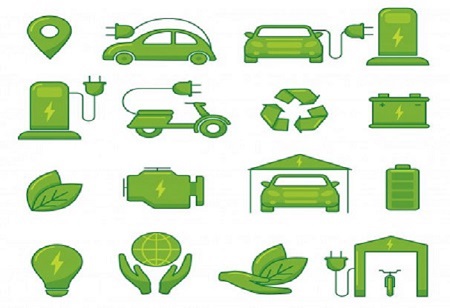Owing to the Covid-19 outbreak in china, it is now turn for the Indian Electric Vehicle industry to face loses after facing disappointment in
Steel and the
Solar sector. An acute shortage of lithium ion cells and several types of electronic components have been recently detected in the supply chain of China and the countries in the East Asian region. As it is known that a major part of raw material for the Indian manufacturing industry is imported from China. Sad but true, the Corona virus outbreak in China has not only affcted the Chinese economy, but also has gravely affected the economies of the countries it exports to.
Experts in the auto-tech industry have forecasted
a gross slowdown of 10 percent in manufacturing and sales over the next year. Especially, when it comes to the Electric Vehicle industry, it is very much dependant on the import of lithium ion batteries and various electronic components from China and is likely to face severe trouble in growth. The big players in this industry such as Tata Motors, TVS, Mahindra & Mahindra, Bajaj Auto, Hero Electric and Ather Energy are in the process of analysing the overall impact and coming up with possible solutions in order to revive the sector in days to come.
"EV makers have been doing a good job of localising components and traditional companies have localised heavily but the most important piece, the cells, are still being imported," said an official from the auto-tech industry (name undisclosed).
The lack in manufacturing units have forced all the Indian EV manufacturers to import the lithium ion cells from a number of Chinese companies and big consumer companies like Panasonic, LG, Samsung. Though the packs for the batteries are produced by them in-house.
"While components can be taken care of to some extent, at least in the short run as manufacturers usually keep 2-3 months' stocks, batteries and battery cells, on the other hand, are imported in small batches since they come with a limited warranty," said Sohinder Gill, CEO of Hero Electric.
